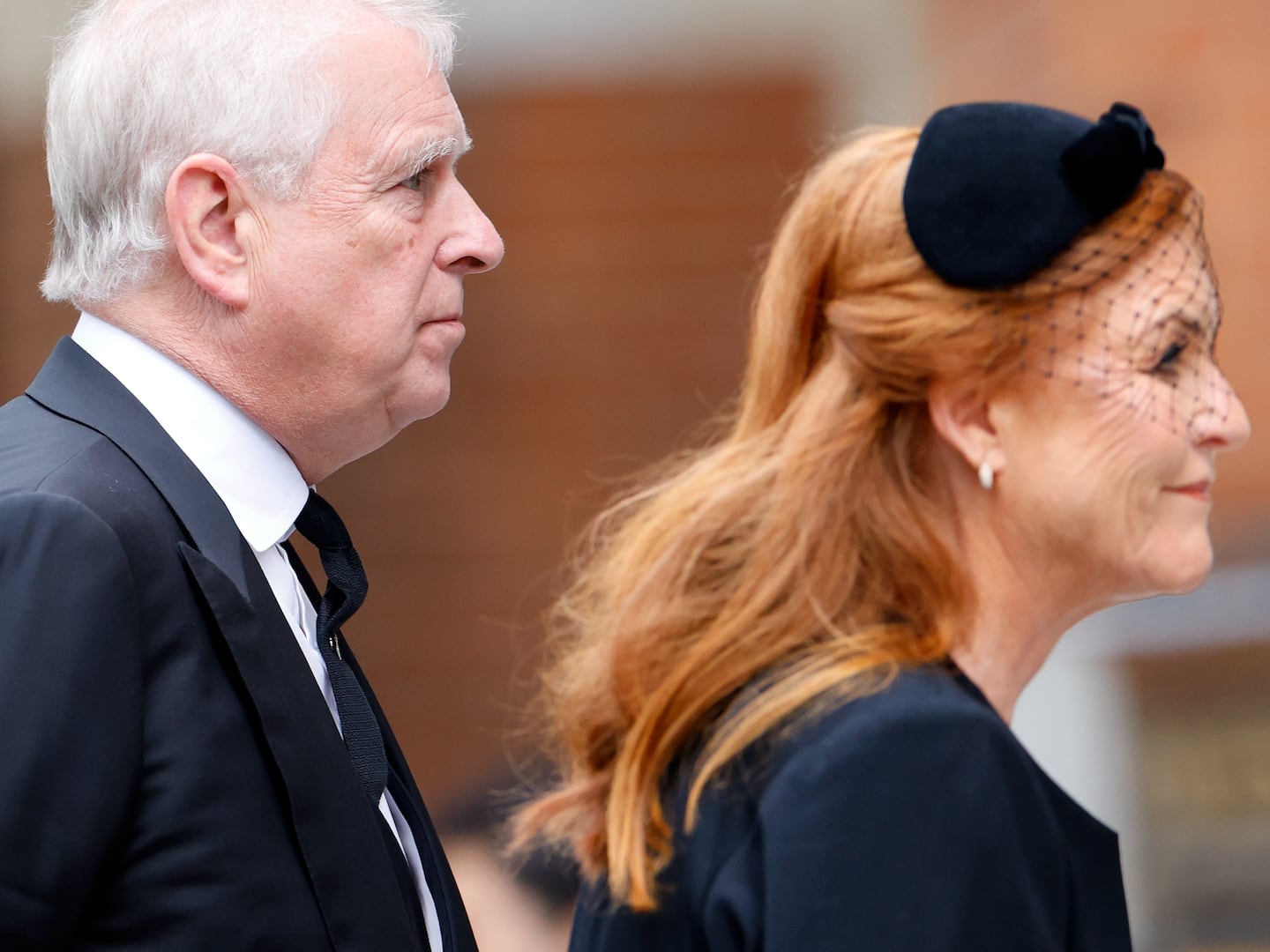“Together, we can make America great again,” the president declares to a crowd of cheering supporters. The eerily familiar catchphrase featured at the beginning of The Lost Tapes: Clinton Impeachment is, surprisingly, not spoken by Donald Trump, but rather Bill Clinton, affirming his commitment to the American people during a speech at the beginning of his presidency in 1993.
Clinton’s two terms as president were plagued with mortifying, high-profile scandals and accusations of sexual misconduct—most notably his affair with White House intern Monica Lewinsky. Clinton’s affair with Lewinsky would come to define his legacy, and nearly cost him the presidency; its effects are still felt now, two decades later, in light of movements like #MeToo.
The affair has become something of a sore subject for the Clintons—especially Hillary, who staunchly maintained her husband’s innocence during accusations of sexual misconduct in 1998. And in a recent appearance on CBS Sunday Morning, Hillary’s support for Bill had not wavered. “Absolutely not,” she said when asked if she thought Bill should have resigned in the wake of the Lewinsky scandal. Hillary also claimed it wasn’t an abuse of power because Lewinsky “was an adult.”
Some prominent Democrats, like Senator Kirsten Gillibrand of New York, beg to differ. In the Smithsonian channel’s latest episode of The Lost Tapes, the Lewinsky scandal, with all its sordid details, is reexamined through archival footage and original reporting.
The Lost Tapes especially focuses on the furor surrounding lawyer Ken Starr’s investigation into the Clinton/Lewinsky affair, and suggests that the subsequent attempts to impeach Clinton were the result of partisan Republicans—especially then-House Speaker Newt Gingrich—trying to take down the president at all costs. Beginning with the lawsuit of Paula Jones, a former Arkansas state employee who accused Clinton of an unwanted sexual advance while he was still the governor of Arkansas, The Lost Tapes shows how Republicans decided to wholeheartedly support the women coming forward to accuse the president of sexual assault in hopes of impeaching Clinton.
That they exploited the private details of multiple women seems to have been secondary to their political agenda throughout the Clinton presidency. Indeed, Republican attempts to impeach Clinton on the grounds of perjury, sexual misconduct and an extramarital affair seem bizarre in today’s political climate, where our president, who is currently the subject of an FBI investigation, has been accused by multiple women of sexual assault, yet remains comfortably in office—despite encouraging men to “grab [women] by the pussy.”
Back in 1996 things were different, to say the least. A government shutdown in the fall, following days of partisan squabbles about Medicare premiums and cuts in education funding, set the stage for the Clinton/Lewinsky affair; White House interns were given assignments usually reserved for full-time staffers, which led to an encounter between the president and Lewinsky. Clinton and Lewinsky’s relationship took off from there, and included clandestine sexual encounters in the Oval Office that culminated with Clinton gifting Lewinsky a copy of Leaves of Grass for Christmas the following year—the same book he’d given Hillary at the start of their relationship, according to footage featured in the episode.
While his affair with Lewinsky continued in secret, Clinton embarked on a re-election campaign that faced increasingly hostile attacks from Republicans, who saw Jones and her sexual-misconduct allegations against Clinton as the sitting president’s Achilles heel, so to speak. Conservatives threw their support behind Jones, who’d become a GOP lynchpin in a matter of months, and whose lawsuit was languishing in circuit court. Former Republican congressman Bob Dornan, who The Daily Beast called the “Inspector Javert to Bill Clinton,” said of Jones’ allegations at the time, “I... believe Paula Corbin Jones. You know what that means? I think we have a criminal in the White House.” Democrats, for their part, consistently dismissed Jones’ allegations, and accused conservatives of co-opting Jones for their own political agenda.
From there, the more familiar details of the narrative begin to take shape. Jones’ lawyers settled on an aggressive tack: subpoena dozens of women, most of them former employees of Clinton at the state or federal level, who had knowledge (sometimes firsthand) of the president’s alleged predatory behavior. Linda Tripp was one such employee. Tripp, a White House staffer from George H. W. Bush’s administration turned Pentagon staffer, was close with Lewinsky. Tripp had also made allegations to Newsweek that former aide Kathleen Willey (also subpoenaed in the Jones case) was groped by Clinton; Clinton’s lawyer, Robert S. Bennett, said at the time, “Linda Tripp is not to be believed.”
Tripp, on the advice of a literary agent, began recording her lengthy phone calls with Lewinsky, who revealed she’d had a sexual affair with Clinton. These tapes, coupled with Tripp’s account of a blue dress owned by Lewinsky and stained with Clinton’s semen, gave Starr more than enough evidence to go after the president—and in 1998, the affair between Lewinsky and Clinton came to light, and indelibly altered the course of Clinton’s presidency.
The hypocrisy of Republican congressmen at the time doesn’t escape scrutiny in The Lost Tapes. While they decried Clinton’s affair and/or his alleged sexual misconduct as reasons for impeachment, efforts by Hustler publisher Larry Flynt revealed that many of the key GOP players, including Gingrich and congressman Bob Livingston, were also engaging in extramarital affairs. Livingston later resigned, while Gingrich claimed that his own affair was not evidence of hypocrisy.
In our #MeToo era of female outrage, there’s a lot to unpack in this episode of The Lost Tapes. Most interesting is the fact that Republican lawmakers had no issue believing women when they claimed a sitting president had sexually assaulted them—so long as the president in question was Clinton, a popular Democrat. Aside from the veracity of the claims, the sheer scope of Clinton’s alleged misconduct is staggering, and the fact that he’s still viewed as a relatively popular president raises questions about the ability of progressive politics to excuse predatory behavior. Lewinsky, for her part, was cruelly villainized by the press at the time—mocked for her weight and appearance, she was referred to as “cunning and pathetic, manipulative beyond her years,” yet also “stunningly naive” and “obsessed” with Clinton. The fact that she was a 22 year-old intern (working her first job out of college, no less) and involved with the most powerful man in the world at the time (her boss) was largely ignored.
A few familiar faces round out the episode, alternatively decrying or supporting Clinton. A young Bernie Sanders, in the midst of the Lewinsky scandal and impeachment trial, urged senators, “Let’s get on with the business of the American people.” And Donald Trump, in an interview with Matt Lauer in 1999, essentially criticized Clinton for choosing to have an affair with Lewinsky, implying that he, Trump, would have chosen someone more conventionally attractive. “He certainly could have picked a better candidate,” Trump smugly explains to Lauer. “And I mean that, and you mean that, and everybody means that... somebody said to me that if he would have had the affair with a supermodel he would have been everybody’s hero. But of course I would never say anything like that.”
While the conclusion of The Lost Tapes suggests that Lewinsky thinks her affair with Clinton was consensual, albeit the result of an “inappropriate abuse of authority, station, and privilege,” an essay penned for Vanity Fair this March found Lewinsky pondering her role in the #MeToo movement, and reconsidering ideas of consent as they related to her affair—one that involved the most powerful man in the free world. And while Lewinsky says she’s finally overcome the trauma of the affair, the patterns of deceit, sexual misconduct, and abuse that ravaged the Clinton presidency remain all too prevalent in the White House today.







